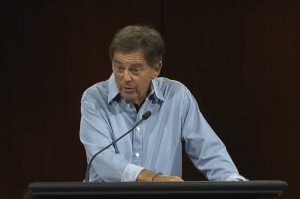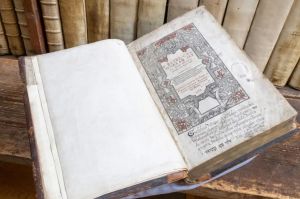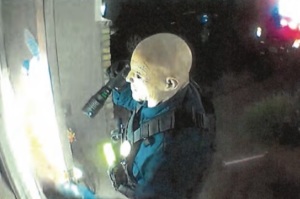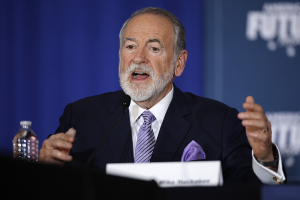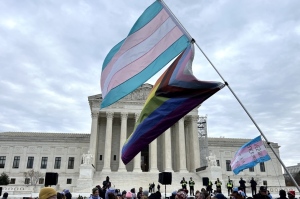Modi has taken 'good steps' to establish India's alliance with US amid rise in persecution: D'Souza
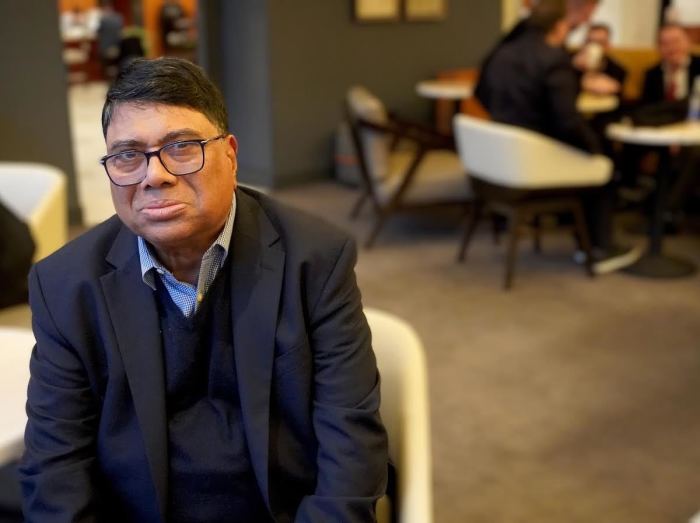
WASHINGTON — A prominent Christian leader in India believes that Prime Minister Narendra Modi has taken "good steps" to establish a strong relationship with the United States, which he views as necessary to address concerns about violations of religious freedom in the country.
Bishop Joseph D'Souza, the president of the All India Christian Council, discussed concerns about religious persecution in his home country in an interview with The Christian Post at the 2024 International Religious Freedom Summit last week.
The missionary and activist weighed in on the performances of both U.S. President Joe Biden and Modi when it comes to responding to the high level of persecution against Christians in his country. Both governments have been accused of overlooking the plight of religious minorities in India as they build an alliance between the world's two largest democracies to stand against the global influence of China.
"The Biden administration, according to reports and statements made by the Biden administration, I would say has been vocal about the situation in India," he said. "And I think the Biden administration is keenly aware about issues of justice and human rights everywhere. And Secretary of State [Antony] Blinken has openly brought up the issue on the breakdown of religious freedom in India."
D'Souza stressed that "most Indians and most Americans support and want to continue to support a very strong Indian-American relationship and alliance."
"India under Modi has taken good steps in expressing and building [a] strategic alliance with the U.S., including the military alliance," he said.
While insisting that "there is very little in today's world that any foreign state can do in another state," he called on "all people who believe in democracy and basic civil rights to express their concern because India has a major role and has grown into a major role in the world's democratic system."
He said it is "in India's interest that these religious extremists who are defaming India are brought under control and the country has peace."
"The world is following what's going on in India," D'Souza added. "The problem for us is that the kind of freedom and harmony that we have experienced since independence has been systematically eroded."
D'Souza cited "the situation in Manipur" as "the main issue that we are concerned about at this time." The Indian state has been in the midst of a conflict for the past nine months as "the Kuki Christians, who are about 40% of the population there, are under siege," he said.
The religious leader recalled that when the violence began in Manipur, "about 400 churches and Christian institutions were destroyed in the Manipur Valley."
"Tens of thousands of Kuki Christians were displaced and … because the violence has … continued unabated, some of the Kuki groups have resorted to arming themselves and defending themselves, so this has become a hotspot now in Northeast India."
"The local government, which is Hindu-dominated in that state, is falsely accusing the Kuki Christians of being involved in some kind of terrorist activity or working with the king in Myanmar," he explained. "We know that is not true, and there is a breakdown of constitutional machinery there."
D'Souza highlighted the "rise of this violent armed group known as the Harambi Meiteis who now will not even respect the constitutional state machinery that has been established there" as a major concern.
He told CP that the group asked local legislators to vote "on the vision and demands of this violent armed group," which include "the displacement of Kukis."
"Christians across India and the northeast are committed to the integrity and unity of India and are more than willing to make sure that the age-old problems in the northeast of secessionism … do not rise up again," D'Souza insisted.
He characterized the Christian minority groups in India as "very well integrated into India," vowing that "this is the last time that anybody wants division based on ethnicity or religion."
Describing Manipur as a "beautiful state," D'Souza remarked, "the Manipuri people, whether they are Hindus or Muslims or Christians or other tribals, are beautiful people and somehow we wish and pray for peace in that area."
While D'Souza maintained a degree of confidence in the current leadership in India, several other religious freedom activists have warned for years that violence and persecution of Christians have exponentially increased in the decade since Modi and his Bharatiya Janata Party rose to power.
Some feel the rise of the BJP, which has close ideological ties to the Hindu nationalist Rashtriya Swayamsevak Sangh organization, has emboldened Hindu extremists to persecute religious minorities.
The United Christian Forum has documented a significant rise in attacks against Christians in India since 2014, after the BJP won the national election, noting there were 720 incidents of violence and persecution against Christians in India in 2023.
David Curry, president and CEO of the religious freedom watchdog group Global Christian Relief, criticized Modi in an op-ed for The Christian Post published last year.
"Modi is a supporter of Hindutva, an extreme political ideology that says someone must be Hindu to be truly Indian," he wrote.
"His administration has jailed critics en masse, enforced anti-minority laws, and taken over the courts," Curry asserted. "Modi's extremist allies like the Rashtriya Swayamsevak Sangh (RSS) have repeatedly called for the genocide of religious minorities."
"The State Department's Office of International Religious Freedom has accused Modi's government of arbitrary killings, restrictions on freedom of expression, and violent targeting of religious minorities," Curry added.
The U.S. Commission on International Religious Freedom criticized the U.S. State Department last month after the agency again failed to place India on its list of countries of particular concern for religious freedom violations.
Countries designated as CPC face the possibility of negative consequences, including potential crippling sanctions.
USCIRF, a bipartisan committee tasked with advising the federal government on religious freedom matters, called for a hearing over the government's failure to designate India and Nigeria.
"In India, in addition to perpetrating egregious religious freedom violations within its borders, the government has increased its transnational repression activities targeting religious minorities abroad and those advocating on their behalf," USCIRF Chair Abraham Cooper and Vice Chair Frederick A. Davie said in a joint statement.
D'Souza also acknowledged that because "the process of justice so slow and it looks like there is inertia," "there's a lot of frustration" as people want "the courts and other judicial authorities to act." He clarified that Christians are not the only minority faith facing "hatred and demonization" in India, asserting that Muslims face religious persecution as well
Although D'Souza spoke favorably of Modi's efforts to buttress a diplomatic relationship with the U.S., he maintained that "the Indian government needs to act quick and fast to ensure "the integrity and unity of India" as well as "the rights of Kukis" and "other tribes in the area."
Ryan Foley is a reporter for The Christian Post. He can be reached at: ryan.foley@christianpost.com

















